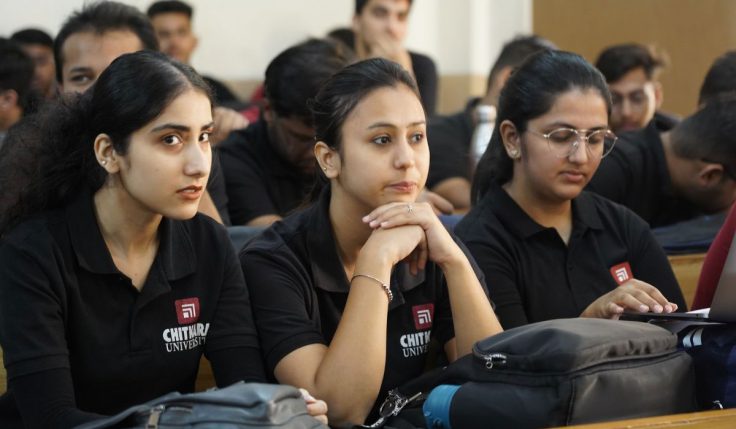Many students throughout the world wish to further their education. However, growing school costs might be a considerable barrier for individuals. Education loans, fortunately, provide a lifeline to students who want to pursue graduation or post-graduation but need financial aid. In this detailed guide, we will lead you through the process of obtaining an education loan, including eligibility requirements and application procedures.
Definition:
An education loan is a sort of financial product developed specifically to assist students in meeting their educational expenses. Tuition, lodging and board, study materials, and other related expenses are covered by these loans. Unlike personal loans, school loans may have lower interest rates and longer repayment terms to assist students in reducing their debt.
Eligibility Criteria:
To be eligible for an education loan, students must typically fulfil the following criteria:
Academic Qualification: You should have completed your higher secondary education (12th grade) from a recognized board or equivalent for graduation loans. For post-graduation loans, you need to have an undergraduate degree from a recognized university.
Admission in a Recognized Institution: You must have secured admission into a recognized college or university for the course you intend to pursue.
Co-applicant or Collateral: Most banks require a co-applicant, often a parent or guardian, who will be responsible for loan repayment. Collateral may be necessary for loans exceeding a certain amount.
Also, read this blog post: Step-by-Step Guide to MBA Admission at Chitkara University
Process of Education Loan:
The process of applying for an education loan involves several steps:
- Research and Compare: Begin by researching different banks and financial institutions that offer education loans. Compare interest rates, loan terms, and repayment options to find the best fit for your needs.
- Check Eligibility: Review the eligibility criteria of your chosen lender to ensure you meet all the requirements.
- Gather Documents: Prepare the necessary documents, which may include academic records, admission letter, identity proof, address proof, income proof of co-applicant, and collateral documents if required.
- Loan Application: Fill out the loan application form accurately and submit it to the chosen bank or lender along with the required documents.
- Loan Sanctioning: The bank will evaluate your application, and if approved, they will provide you with a sanction letter stating the loan amount, interest rate, and other terms.
- Loan Disbursement: Once you receive the sanction letter, the bank will disburse the loan amount directly to the educational institution or in some cases, to your bank account.
Banks Offering Education Loans:
Several public and private sector banks, as well as specialized financial institutions, offer education loans to students. Some well-known banks that provide student education loans include the State Bank of India (SBI), HDFC Bank, ICICI Bank, Punjab National Bank (PNB), and Axis Bank. It is essential to consider factors like interest rates, processing fees, and customer service when choosing a bank.
Tips for a Successful Education Loan Application:
- Start the process early to ensure sufficient time for application and approval.
- Maintain a good academic record to enhance your eligibility.
- Keep all required documents handy and organized.
- Consider opting for a loan insurance plan to safeguard against unforeseen circumstances.
Types of Education Loans:
Education loans come in different variants to cater to diverse needs. Some common types include:
-
- Graduation Loans: These loans are tailored for students pursuing undergraduate courses like Bachelor’s degrees in various fields.
Post-Graduation Loans: Designed for students enrolling in master’s or professional courses, these loans cover the expenses of higher studies.
Study Abroad Loans: For students seeking education overseas, study abroad loans provide financial support to cover the additional expenses associated with international education.
Vocational Education Loans: These loans support students pursuing vocational or skill-based courses that may not fall under the traditional graduation or post-graduation programs.
Loan for Specific Courses: Some banks offer specialized loans for specific courses like management, engineering, medicine, and others, which may have tailored interest rates and repayment terms.
Interest Rates and Repayment Terms:
Interest rates on education loans can be either fixed or floating. Fixed rates remain constant throughout the loan tenure, while floating rates fluctuate with market conditions. The interest rates for education loans are generally lower than those of personal loans, making them a more affordable option for students.
Repayment terms can vary from bank to bank, but most lenders offer a moratorium period, allowing students time to complete their education before starting the loan repayment. The repayment typically begins after the moratorium period ends or after securing employment, providing students with a window to settle into their careers before repaying the loan.
Loan Amount and Expenses Covered:
Education loans typically cover tuition fees, examination fees, library charges, laboratory fees, and other academic expenses. Additionally, they may cover accommodation and hostel charges, travel expenses, and the cost of study materials like books and laptops. The loan amount is determined based on the course’s duration, the institution’s reputation, and the overall expenses involved.
Government Initiatives and Subsidies:
Governments in several nations provide various programs and subsidies to students seeking higher education. Interest subsidies during the moratorium time, lower interest rates for certain kinds of students, or financial incentives for academic performance are all possibilities. When applying for an education loan, make sure to look into any government-sponsored programs and advantages.
Loan Application Checklist:
Before applying for an education loan, here’s a handy checklist to ensure a smooth application process:
- Academic records and admission letter
- Identity proof (Aadhar card, passport, etc.)
- Address proof (Driving license, utility bills, etc.)
- Income proof of co-applicant (salary slips, income tax returns, etc.)
- Collateral documents (property papers, FD receipts, etc.), if applicable
- Passport-size photographs
- Any other documents as specified by the bank
To summarise, college loans are critical in making students’ goals a reality. They enable prospective graduates and postgraduates to follow their selected courses without regard for budgetary restraints. When considering an education loan, carefully examine your alternatives and select a lender that offers competitive interest rates, flexible repayment periods, and exceptional customer service. Remember that an education loan is an investment in your future, and with careful financial preparation and devotion to your studies, you may turn it into a stepping stone to a prosperous and rewarding profession. So, think large, aim high, and confidently begin on your educational path!
Remember Chitkara University does not have any tie-up with any bank or financial institution for education loans. Students are expected to do their own research and approach any bank or financial institution which they deem suitable. The information provided here is for educational purposes only. Interest rates, terms & conditions, etc mentioned in the article may change without notice.






